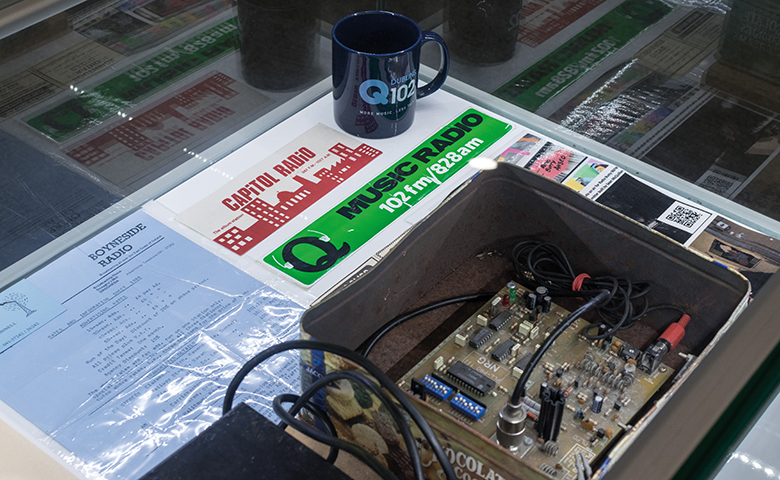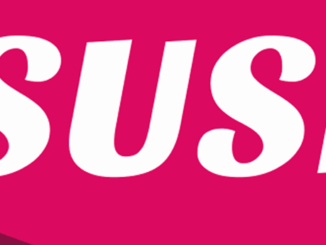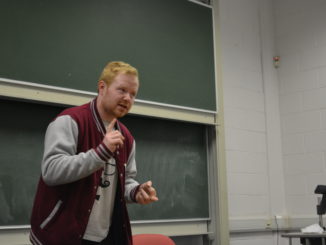
[dropcap]DCU[/dropcap] received an extensive Irish Pirate Radio Archive including a transmitter that was camouflaged as a biscuit tin in the event a station was raided by post officials.
This item, which originally belonged to novelist Pat McCabe, as well the rest of the Archive was donated by broadcast historian Eddie Bohan to DCU’s Media History Collection in DCU’s O’Reilly Library.
“It’s very appropriate that the Archive is coming to DCU since so many pirate radio stations, and their DJs, originated in the North Dublin area,” said Professor of Journalism History in DCU. Mark O’Brian.
DCU became the owner of the Collection in time for the 30th anniversary on New Year’s Eve of pirate stations shutting down due to the launch of independent and regional stations, which are broadcasting today.
The Archive will consist of posters, flyers, magazines, photographs and audio recordings.
The Collection is on view in the Library on DCU’s Glasnevin campus. It will soon be catalogued and made available to researches. The long term goal for the Archive is to be used for a digitisation project which will make the Collection available online.
This project currently needs to find funding to be achieved.
Ireland’s era of pirate radio was a catalyst for how broadcasting changed in Ireland. It emerged when the airwaves were dominated by one radio station which did not represent the country’s young demographic or their ‘pop music’ tastes.
“Pirate radio, for the most part, wasn’t political, but it allowed a younger generation to develop their own culture which fed into wider processes of slow social change,” said O’Brien.
Both rural and urban Ireland were united by the broadcast revolution as “every town and village had a pirate radio station at some stage, even if they only lasted for a short time,” continued O’Brien.
These stations were illegal but largely innocuous, however when pirate stations brought in advertising raids became frequent which resulted in transmitters and other equipment being seized.
This exact equipment recently found its “forever home” in DCU according to O’Brien.
“Radio Melinda was in Sean McDermott Street, where we got raided and fined two quid,” said radio broadcaster Declan Meehan to the Irish Times.
“But we wanted to change the monopoly of Radio Éireann at the time,” he continued.
Through a partnership between the School of Communications and the university library, DCU established a varied compilation of media artifacts over the past decade from over 40 donations of material. These include pieces of photojournalism and papers form editors and journalists.
Consequently, DCU has become “a ‘go-to’ place for people who are looking to give material relating to media and journalism,” says O’Brien who is “thrilled” that DCU was chosen to receive the archive.
Broadcaster that have become household names in Irish media history, such as Gerry Ryan and Tony Fenton, pioneered their careers through pirate radio. Brian Dobson, Anne Cassin, Marty Whelan, Declan Meehan, Ian Dempsey and Colm Hayes are among others which contributed to this period of Irish history.
The historical paraphernalia was made available to the public on Friday the 5th of October. A further event will take place on October 20th in Ballsbridge Hotel where pirate radio station owners, DJs and people who raided the stations will have their stories recorded.
By Cáit Caden
Image Credit: Daria Jonkisz
Video Credit: Dara Browne



